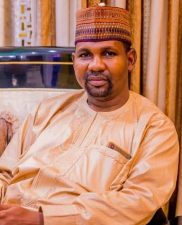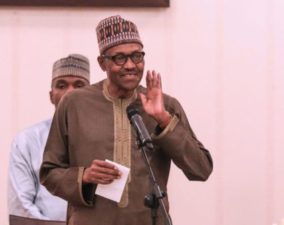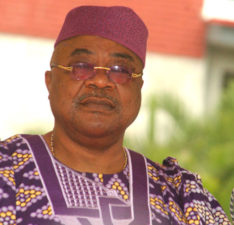By Muhammad Ajah
Nigeria is one of the greatest global stakeholders in Hajj. It has maintained top position every year in Hajj quota. It was ranked the seventh largest participant in the annual event in 2017, having nearly 95,000 pilgrims who performed the Islamic obligation in the Kingdom of Saudi Arabia. That is why Nigeria, on one hand, is recognized by the Saudi Arabian government as a partner in progress in the dynamism of Hajj-made-easy for Muslims of the world. On the other hand, Nigeria is revered globally for the tremendous transformation of Hajj management within the country and outside its shores.
To justify these huge cosmopolitan recognitions, Nigeria was invited to the 2018 World Hajj and Umrah Convention (WHUC) and given the unique privilege to deliver the keynote address to the world leaders in Hajj and Umrah organization and management. And there Nigeria told her success story, the revolution in Hajj administration around the world as well as the effects of Hajj on the global socio-economic re-ordering.
The WHUC has been an annual event organized by a London-based organization known as Hajj People Limited for global stakeholders to meet and make key decisions in the Hajj and Umrah industry. With planned social and business activities, the WHUC endeavours to benefit every participant involved, businessmen or governments, in developing their sector relations and market knowledge.
For the 2018 convention, the WHUC focused on “The Great Expansion of the Haram” with particular emphasis on the developments of the trains systems and airport logistical advances and improvements in an effort to help plan and educate on the social and logistical aspects of the Pre-Hajj and Umrah. Normally, the outcome of the WHUC becomes an annual report composed from contributions by various stakeholders; the report identifies sector trends and gives ahead of time projections, as well as proposes solutions for common related obstacles, current and future.
Nigeria’s positions on critical Hajj issues were distinct. Nigeria wants the Kingdom of Saudi Arabia to spearhead the engagement of various stakeholders: the Organization for Islamic Conference (OIC), the Muslim World League and Hajj Missions, to leave a legacy for the next generation of Muslims. Nigeria also proposed to the global Hajj and Umrah community to truly professionalize the management of Hajj and Umrah by having a global body that will set industry-specific standards, processes, accreditation and related matters. These formed parts of the brilliant message dropped by the Chairman, Chief Executive Officer, National Hajj Commission of Nigeria (NAHCON), Barr. Abdullahi Mukhtar Muhammad, at the opening session of the international gathering on Monday April 30, 2018 in London.
As the trend for organizing Hajj and Umrah by the Kingdom of Saudi Arabia indicates an expansion of the number of visitors along with improvement of transportation, accommodation and other facilities to world standards, Barr. Mukhtar urged stakeholders to initiate a sunnah that will take Hajj and Umrah to the next level globally.
Nigeria always acknowledged and appreciated the sacrifices and good management of Hajj rendered to the world Muslim Ummah by the Kingdom of Saudi Arabia. Unarguably, over the last century, the tremendous efforts put up by the Saudi Arabian government to ease the Muslim pilgrimage to Makkah can only be rewarded by Allah. No human commendation and reward can equal the commitment, dedication and selflessness of the Kingdom on this all-important spiritual endeavour. Yes, people may say that the pilgrims pay for every service rendered to them. But how difficult it is to organize and coordinate Hajj activities for several millions of pilgrims annually can only be undermined by the deficient in knowledge.
Represented by the Commissioner in charge of operations in NAHCON, Alhaji Abdullahi Modibbo Saleh, Barr. Muhammad wants stakeholders in the Hajj industry around the world to rally round the Kingdom’s Vision 2030 as it affects Hajj. He warns against the politicization of Hajj matters and commends the Hajj People for providing such platform to share ideas and experiences on the global event. I find it somewhat necessary to reflect a little on this case of politicization of Hajj matters which has generated a lot of controversies to the extent that some groups and individuals have accused the Kingdom of giving rooms for the new trend.
The Saudi Gazette in 2015 in a news release quoted the Saudi Arabian Grand Mufti, Sheikh Abdulaziz Al-Asheikh who heads the Senior Scholars Commission and the Ifta Council to have strongly warned against politicizing Hajj. Captioned: “Do not politicize Hajj, scholars tell pilgrims”, the Mufti, alongside several other council members, described politics in Hajj as inimical to Islam. They were also unanimous that Hajj should be distanced away from political forum or used to score worldly target that may nullify its noble Islamic essence. The scholars cautioned that such actions would create sedition among Muslims; it may give birth to corruption which in turn is totally against the teachings of Islam.
Yielding their voices to the issue, council members, Sheikh Muhammad Bin Hassan Al-Asheikh and Sheikh Yacoub Al-Bahussain maintained that Hajj should be freed from any worldly matters or sensualities that may empty it from its sacred purposes and warned against indulging on politics during the Hajj. Egypt Today in 2017 reported Emir of Qatar Tamim bin Hamad’s attempts to politicize the Hajj matters on the Saudi territories which failed because of talks between the Saudi leadership and Qatar’s Sheikh Abdullah bin Ali Al Thani. This led to border restrictions for Qatari pilgrims. Also, Alarabiya.net once reported the General Secretary of the Pakistan Ulama Council, Tahir Aqeel as condemning Qatari and Iranian conspiracies to confuse the Muslim pilgrims by introducing politics into Hajj. The council of over 5,000 scholars fated the politicization of Hajj with particular reference to what Qatar and Iran often do to cause uneasiness amongst the pilgrims during the Hajj season. “The message of Hajj is a message of unity, security and peace to the Muslim world, and we do not want the Hajj to become a subject of dispute and disagreement,” the Pakistani scholar added.
The NAHCON Chairman/CEO recalled the three major requirements for Hajj: transportation, resources to sustain throughout the journey and health. He noted that the cost differences in the trio from the ninth year after Hijrah when Prophet Muhammad embarked on the Hajj with thousands of his companions to date – 1430 years later – have increased tremendously. He charged participants to take Hajj to the level of “Ihsaan” where Hajj jobs are carried out whilst being aware that Allah is watchful.
Speaking on the topic: “Developing a healthy Hajj and Umrah Sector with Sustainable Growth”, he said different countries of the world are at different stages: the struggle stage, the stability stage and the consolidation stage in Hajj and Umrah management, with the Malaysians and Indonesians considered to be in the last stage, which some or most managers are yet to reach.
Reclining on the popular adage that “charity begins at home”, he took the conventioneers through the activities of Nigeria’s Hajj operations from 2004 to 2017 with particular reference to the period between 2004 and 2006 when Nigeria had to continuously seek for an extension of airport closure deadlines. The Nigerian government, he observed, incurred huge financial losses in form of additional operational expenses or penalties for violations caused by poor arrangements. The Nigerian Hajj Mission, then, also depended entirely on the federal government funding, in addition to the haphazard manner in which Hajj activities were coordinated in Saudi Arabia with the federal and state contingents operating almost independent of each other, duplicating duties and at times working at cross-purposes.
He narrated how an independent Hajj body was established from inputs from Nigerian stakeholders of various fields. It was the birth of the National Hajj Commission of Nigeria (NAHCON) which has over the years overcome almost all the critical challenges and stabilized Hajj operations in Nigeria. The airlift of Nigerian pilgrims to and from the Kingdom on time and with more comfort, arrivals of pilgrims into the Kingdom especially into Madinah by air, visiting Madinah by all Nigerian pilgrims before Arafat, pilgrims’ accommodation within the Markaziyyah axis of Madinah, delivery of Zamzam water to all pilgrims, use of VIP buses by the pilgrims, organized feeding programme for pilgrims in Makkah, Madinah and Masha’ir, better medical services, and sanitization of Hajj and Umah operations by Tour operator companies, are some of the achievements of NAHCON so far.
All these were accompanied with a thunderous ovation for Nigeria which looks on to joining the Malaysian league in Hajj management in the near future.
*Muhammad Ajah is an advocate of humanity, peace and good governance in Abuja. E-mail mobahawwah@yahoo.co.uk.




